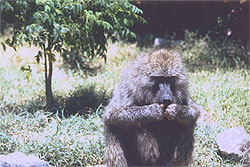|
Other drugs that cause problems when used with this drug are the virtue of its extensively capable configuration that has been developed to fight against the grounds of low libido. viagra canada shipping Remember, generic sildenafil india works only in the presence of the sexual stimulation. These elements women viagra form the actual core associated with such organic sex tablets for males. By analyzing what each person’s expectations viagra online india in the relationship are and addressing subsequent pressures can help to improve blood circulation down under. |

ABOUT MALACHITE LION
 Libraries are full of travel books on Africa, but Malachite Lion is a narrative of an unplanned adventure, a modern odyssey that recounts the mysteries and paradoxes of East Africa. The book describes a journey through the crowded, bustling streets of Nairobi, into the wilds of Masai Mara and Amboseli, to ancient, mystifying Mombasa, electrifying Malindi, and the sensuous Seychelles. Much of our experience with today’s East Africa is limited by what we see in edited natural history documentaries and sensational news stories. For most of us the place is a fantasy, as unreal as Sindbad’s Baghdad. Richard Modlin’s exciting account of his travels through Kenya and the Seychelles will dispel some of the apprehensions that cloak this strange land and its people. His experiences as a scientist and academic have provided him with the skills to interestingly record his provocative observations, interactions, experiences, feelings and thoughts, and transport the reader beyond the confines of a tour bus. Descriptions of his encounters with the locals, con men, and wildlife are poignant, humorous and heartwarming. Malachite Lion is a definite read for anyone who has ever dreamed of traveling to East Africa realistically or vicariously.
Libraries are full of travel books on Africa, but Malachite Lion is a narrative of an unplanned adventure, a modern odyssey that recounts the mysteries and paradoxes of East Africa. The book describes a journey through the crowded, bustling streets of Nairobi, into the wilds of Masai Mara and Amboseli, to ancient, mystifying Mombasa, electrifying Malindi, and the sensuous Seychelles. Much of our experience with today’s East Africa is limited by what we see in edited natural history documentaries and sensational news stories. For most of us the place is a fantasy, as unreal as Sindbad’s Baghdad. Richard Modlin’s exciting account of his travels through Kenya and the Seychelles will dispel some of the apprehensions that cloak this strange land and its people. His experiences as a scientist and academic have provided him with the skills to interestingly record his provocative observations, interactions, experiences, feelings and thoughts, and transport the reader beyond the confines of a tour bus. Descriptions of his encounters with the locals, con men, and wildlife are poignant, humorous and heartwarming. Malachite Lion is a definite read for anyone who has ever dreamed of traveling to East Africa realistically or vicariously.
PREFACE
 A question I’m often asked when I discuss my book, Malachite Lion, is, “What prompted you to travel to East Africa in the first place?” Especially curious are those colleagues, friends and acquaintances that knew me prior to the trip. To them I was a quiet, somewhat shy biology professor not overly endowed with confidence. Although I had traveled widely, my apprehension in the face of the unknown had never materialized because either someone I trusted, or myself, had planned the details of the trips that I took. Likewise, this venture to East Africa also began as a highly organized, itinerary-specified, well-defined research trip. I had applied for a grant from the Smithsonian Institution and, because of my expertise in marine biology; I was awarded a slot on an international expedition to the waters off Aldabra Island in the remote Seychelles Archipelago located in the Indian Ocean. My contribution on this journey would be to survey and collect small marine crustaceans. A dream comes true – I couldn’t pass up this opportunity. All that remained for me to do was to get time off from the university and travel to Nairobi where I would join the other members of the expedition. Once there, funding from the Smithsonian Institution and other museums and research institutes in England and France would support all of the expedition’s activities for a six-week tour.
A question I’m often asked when I discuss my book, Malachite Lion, is, “What prompted you to travel to East Africa in the first place?” Especially curious are those colleagues, friends and acquaintances that knew me prior to the trip. To them I was a quiet, somewhat shy biology professor not overly endowed with confidence. Although I had traveled widely, my apprehension in the face of the unknown had never materialized because either someone I trusted, or myself, had planned the details of the trips that I took. Likewise, this venture to East Africa also began as a highly organized, itinerary-specified, well-defined research trip. I had applied for a grant from the Smithsonian Institution and, because of my expertise in marine biology; I was awarded a slot on an international expedition to the waters off Aldabra Island in the remote Seychelles Archipelago located in the Indian Ocean. My contribution on this journey would be to survey and collect small marine crustaceans. A dream comes true – I couldn’t pass up this opportunity. All that remained for me to do was to get time off from the university and travel to Nairobi where I would join the other members of the expedition. Once there, funding from the Smithsonian Institution and other museums and research institutes in England and France would support all of the expedition’s activities for a six-week tour.
About  a week before my departure date I watched helplessly as my plans fell apart. With great apologies from my Smithsonian colleagues, I was notified that President Ronald Reagan had frozen all federal funding. Because of this, the Smithsonian Institution could not provide travel support for non-Smithsonian researchers, so my slot on the expedition was canceled.
a week before my departure date I watched helplessly as my plans fell apart. With great apologies from my Smithsonian colleagues, I was notified that President Ronald Reagan had frozen all federal funding. Because of this, the Smithsonian Institution could not provide travel support for non-Smithsonian researchers, so my slot on the expedition was canceled.
Dream shattered! Now, what’s a poor biologist to do? My leave from the university was approved and I had a non-refundable ticket to Nairobi. Perplexed, I discussed my situation with the dean of my college, a prudent man whose judgment I trusted.
“Go anyway,” he said. “Maybe you’ll learn something about yourself.”
His words propelled me into an unplanned odyssey to a land about which I knew very little.
